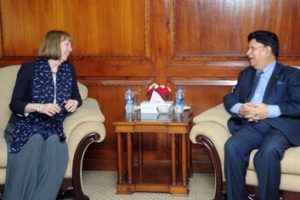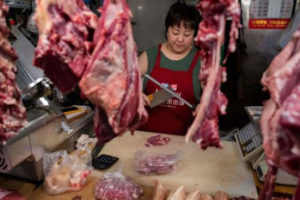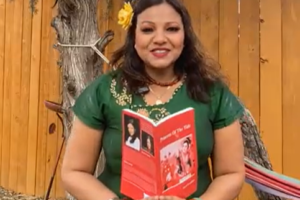Protesters have blocked the main thoroughfares in the Iraqi capital Baghdad, as mass anti-government protests continue.
Demonstrators were seen parking cars at key junctions of the city as police looked on without intervening.
Since 1 October, tens of thousands of people have taken part in two waves of protests to demand more jobs, an end to corruption, and better services.
More than 250 have been killed in clashes with security forces.
In Baghdad, protesters have been defying a curfew introduced in late October.
Last week, Iraqi President Barham Saleh said Prime Minister Adel Abdul Mahdi would resign if political parties could agree on his replacement.
What’s happening in Baghdad?
On Sunday, protesters shut down the main roads of the capital.
Students were staging sit-ins at their schools, and government offices were closed on the first day of the working week in the Muslim nation.
“We decided to cut the roads as a message to the government that we will keep protesting until the corrupt people and thieves are kicked out and the regime falls,” Tahseen Nasser, a 25-year-old protester, was quoted as saying by the AFP news agency.
“We’re not allowing government workers to reach their offices, just those in humanitarian fields,” he added.
The epicentre of the unrest has been Baghdad’s central Tahrir Square.
Protesters there have been attempting to cross a nearby bridge to the fortified Green Zone, which houses government buildings and foreign embassies.
What about other Iraqi cities?
Similar protests were taking place in the city of Kut, south-east of Baghdad.
Many government offices and schools were shut on Sunday in a number of cities and towns further south.
What’s the background to this?
Mr Abdul Mahdi, a veteran Shia Islamist politician with a background in economics, became prime minister just over a year ago, promising reforms that have not materialised.
On 1 October, young Iraqis angered by his failure to tackle high unemployment, endemic corruption and poor public services took to the streets of Baghdad for the first time.
The protests escalated and spread across the country after security personnel responded with deadly force.
After the first wave of protests, which lasted six days and saw 149 civilians killed, Mr Abdul Mahdi promised to reshuffle his cabinet, cut the salaries of high-ranking officials, and announced schemes to reduce youth unemployment.
But the protesters said their demands had not been met and returned to the streets in late October.
Source: BBC






















